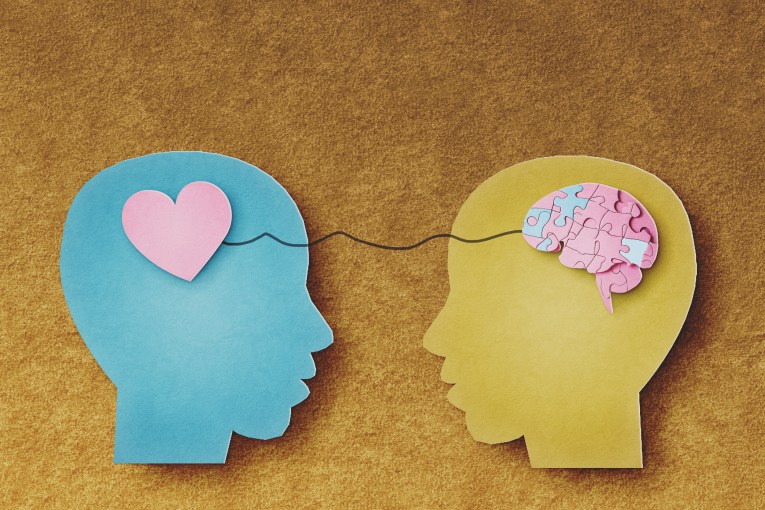ABC slammed for ‘scientifically bankrupt’ report


The ABC is defending the Catalyst episode.
The ABC’s flagship science program Catalyst has drawn fire from scientists and health experts for a “scaremongering” and “misleading” report linking mobile phone use and Wi-Fi with brain cancer.
Tuesday night’s episode was heavily criticised by some of Australia’s leading experts on cancer and electromagentism, who claimed the report was “incorrect” and “scientifically bankrupt”.
The episode titled ‘Wi-Fried?’ was reported by Dr Maryanne Demasi, whose 2013 episode on the safety of statins, commonly prescribed to lower cholesterol, was found by the ABC to have breached impartiality guidelines (and by independent experts to have prompted more than 60,000 patients to reduce or stop taking prescribed statins).
• Popular weight-loss products leave man close to death
• The dark side of high-caffeine energy drinks
• The shocking health fact every woman must know
Tuesday’s 30-minute report on Wi-Fi relied heavily on a US cancer epidemiologist Dr Devra Davis, who claimed that mobile phone use could cause brain cancer. In one segment, Dr Davis refuted the lack of increase in brain cancer rates by claiming the spike would only manifest after 40 years of widespread phone use.

The reporter, Dr Demasi (r), relied heavily on the quotes of Dr Davis (l). Photo: ABC
Public health expert Dr Simon Chapman, one of two Australian experts who declined to be interviewed by the ABC for the episode, was critical of the “scaremongering” report, saying it contained many “simply wrong” claims that would make viewers unnecessarily afraid.
“There will be parents demanding that Wi-Fi gets shut down in schools, there will be people who will probably stop using mobile phones as a result of it, and the net effect of that across the whole population is likely to be profoundly negative,” Dr Chapman told The New Daily.
The reporter, Dr Demasi, has herself written about the issue. In an opinion piece published by Guardian Australia ahead of the episode airing, she wrote that: “I’d rather take precautions in the absence of all the evidence rather than sticking my head in the sand.”
‘No spike in brain cancer’
Dr Chapman rejected Dr Davis’ claim that brain cancer rates might suddenly “shoot up” after years of remaining steady because of phone exposure. In particular, he refuted Dr Davis’ claim that such a cancer spike occurred after the nuclear blasts in Hiroshima and Nagasaki.
“Now that’s not what we see with cancer epidemiology. We see gradual increases in the early years and then we see the incidents starting to rise more steeply until we get to what we call peak incidents,” Dr Chapman said, citing a 2004 study showing a steady increase in cancer rates in Hiroshima and Nagasaki.

Catalyst’s Dr Demasi says she has been convinced to take “precautions”. Photo: ABC
“The take home message is that brain cancer is not rising in Australia in any age group other than the very oldest group – that age-group has seen a rise in brain cancer since well before Wi-Fi or mobile phones were introduced, therefore that rise in that particular age group cannot be explained by the advent of Wi-Fi or mobile phone, and it’s more to do with advances in diagnosis.”
‘Cherrypicked data’
The ABC episode correctly noted that the World Health Organisation lists Wi-Fi as a “possible” carcinogen (as opposed to “known” or “probable”).
Even so, Cancer Council Australia spokesman and scientific advisor Professor Bernard Stewart, who also refused Catalyst‘s request for interview, labelled the episode “scientifically bankrupt” and “without scientific merit”.
“I think the tone of the reporting was wrong, I think that the reporter did not fairly draw on both sides, and I use the word ‘sides’ here reluctantly,” Professor Stewart told The New Daily.
He claimed that viewers of the episode would have been exposed to “cherrypicked” data.
“I think many of [the studies used] were taken out of context and not consistent with what is actually stated in, for example, the abstract or the overall summaries by the authors of those papers.”
‘A fringe position’
Professor Rodney Croft, director of the NHMRC’s Centre for Research Excellence in Electromagnetic Energy, warned the public to be cautious of the “fringe position” of Dr Davis, the episode’s key interviewee.

The ABC is defending the Catalyst episode.
“I was particularly disappointed to see ‘Wi-Fried’ air in the guise of science journalism, and felt it important to reassure other viewers that the fringe position provided by Dr Davis and associates is merely that, a fringe position that is not supported by science,” Professor Croft wrote for The Conversation.
“Instead of science journalism, Catalyst aired a misleading program, which followed the views of a few individuals in arguing that radiofrequency emissions from wireless devices were harmful.”
In response to the program, the nation’s radiation regulator, ARPANSA, issued a statement reiterating its current position: that there is “no established scientific evidence” that phones or Wi-Fi cause any health effects.
“Some studies have reported a weak association between heavy mobile phone use against the head and brain cancer, but this is not substantiated by the bulk of scientific evidence from the many studies that have been performed,” ARPANSA said in the online statement.
But the regulatory body also offered suggestions on how to reduce phone radiation exposure for those still concerned by wifi.
ABC defends episode
The ABC responded to questions from The New Daily with a statement saying the program had represented “a diverse range of views” and “covered the issue appropriately and in accordance with the Editorial Policies”.
“It is also important to note that at least two of the current critics of the program (Drs Bernard Stewart and Simon Chapman) were invited to participate in the program but declined. Had they agreed to be interviewed, their views would have been included as well,” the ABC statement said.
“Against that background and those constraints, the program team included a diverse range of views and remains confident that it covered the issue appropriately and in accordance with the Editorial Policies.
“As is always the case with all ABC content, any complaints about the program will be promptly and appropriately investigated by the independent Audience & Consumer Affairs team.”
-with Jackson Stiles









